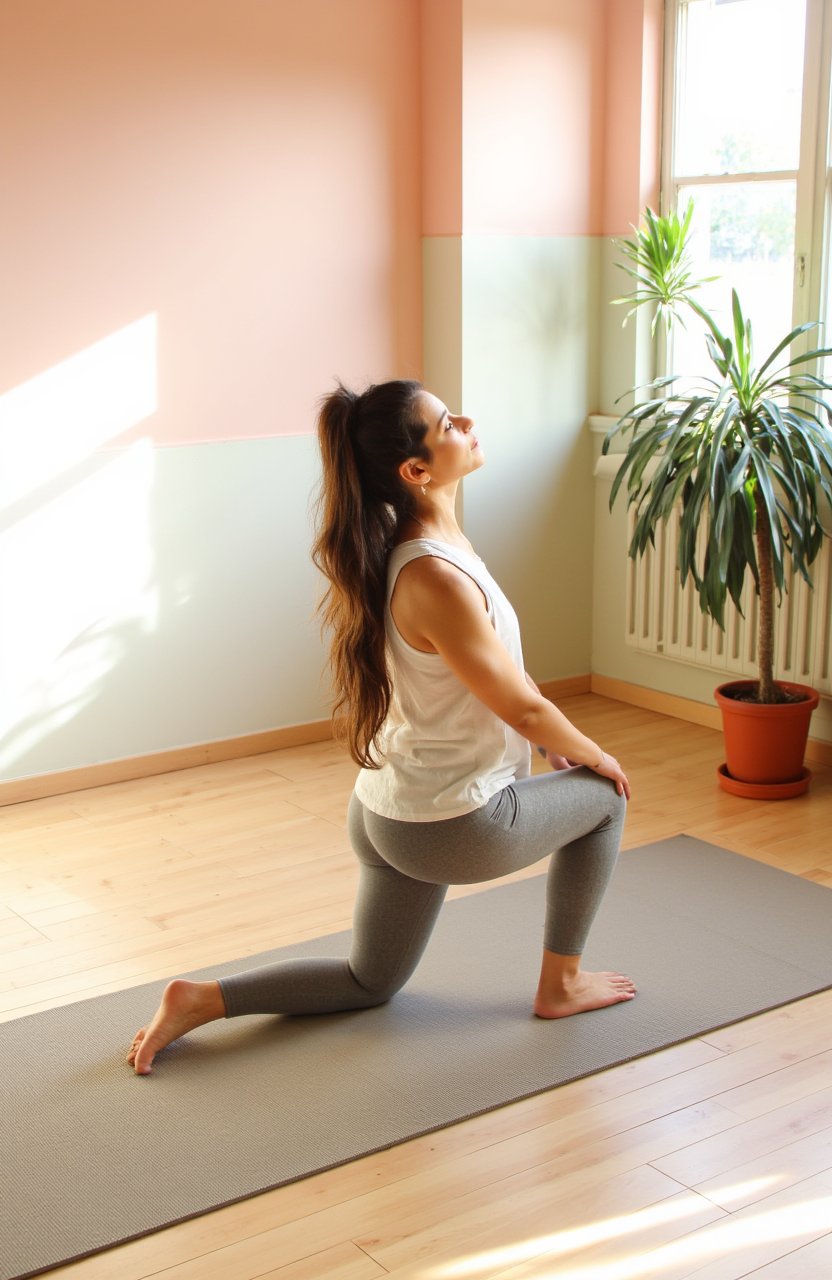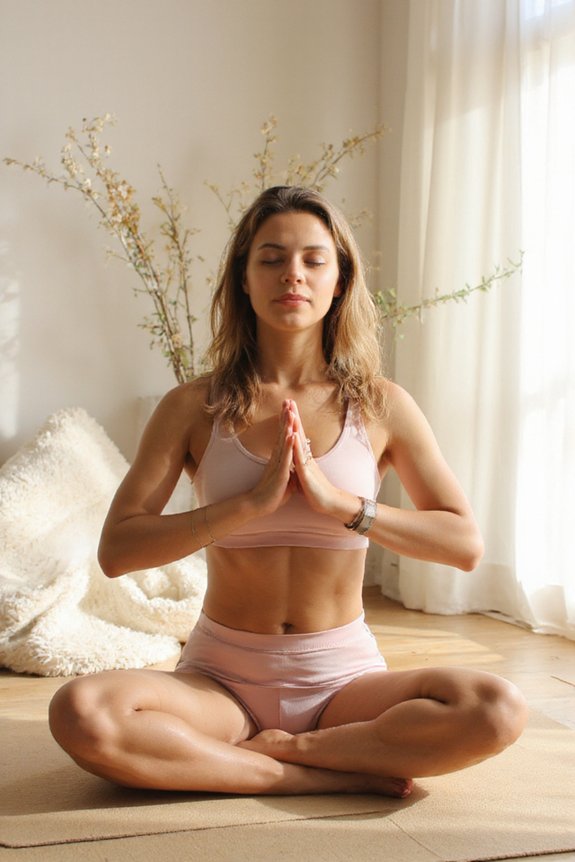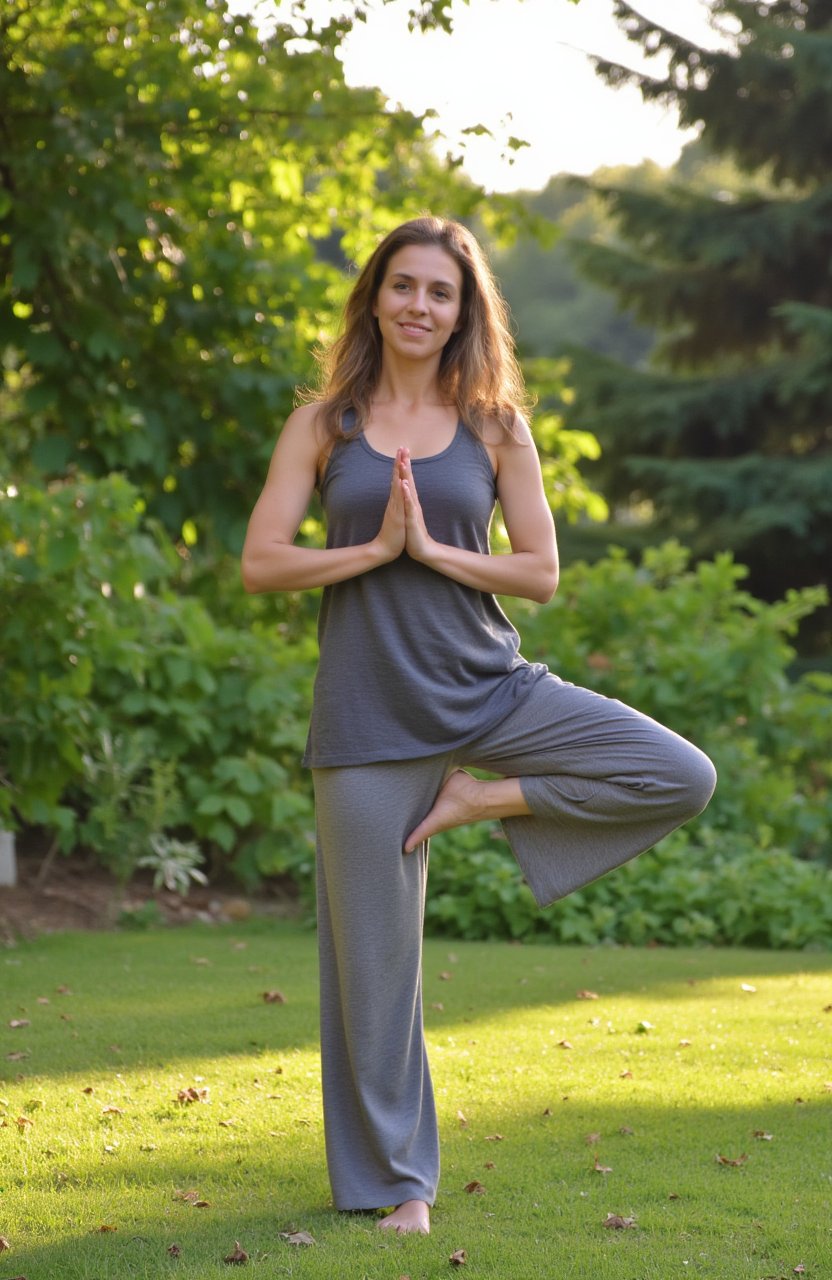As the day winds down, you might find it challenging to shift from the busyness of life to a peaceful night’s sleep. Your mind races with thoughts about the day’s tasks and tomorrow’s to-do list. But what if I told you that a few evening stretches could help you move into relaxation? Evening stretches are an effective way to improve your sleep quality and ease the stress that often keeps you awake.
As the day closes, embrace evening stretches to unwind and enhance your sleep quality.
When you take the time to stretch in the evening, you’re not just limbering up your muscles; you’re also helping to regulate your body’s circadian rhythms. This means you’re promoting a natural sleep-wake cycle that can enhance the quality of your sleep. Imagine getting into bed feeling calm, relaxed, and ready to drift off. Stretching can also reduce stress and anxiety, two common barriers to a good night’s rest. By letting go of the tension built up throughout the day, you’re setting the stage for a more restful night. In fact, evening activity can extend sleep time by up to 15 minutes, making it even more beneficial. Regular stretching can improve blood flow and relieve muscle tension, further enhancing your overall relaxation.
So, when’s the best time to incorporate these stretches? Aim to start about 30 minutes to an hour before bedtime. This allows your body to unwind and prepare for sleep. Begin with deep breathing exercises, inhaling slowly through your nose and exhaling through your mouth. This will help relax your body and mind, creating the perfect atmosphere for stretching.
Try a neck stretch by gently tilting your head to each side and holding for thirty seconds. It’s a simple way to release tension in your neck. Shoulder rolls are another great option; roll your shoulders forward and backward in circular motions. This helps to alleviate tightness in your upper body.
Don’t forget to stretch your legs, too. Stand with one hand against a wall and lift one leg behind you in a quad stretch, keeping your knee straight. Finally, lean forward with feet shoulder-width apart for a calf stretch. These gentle movements should feel good; if something hurts, ease off.
The key is consistency. Make these stretches a regular part of your nighttime routine. Avoid any vigorous activity before bed; you want to focus on light, relaxing stretches. By doing this, you’ll not only enhance your sleep quality but also enjoy a more peaceful shift from your busy day to a serene night’s sleep.









